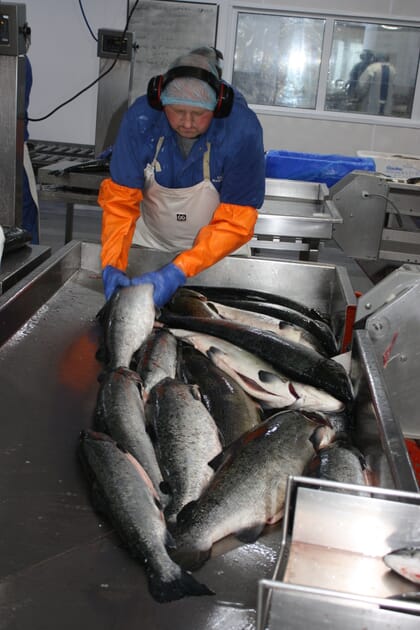
Defra minister Jo Churchill said that, because fish slaughterhouses contain no official veterinarians and are subject to no routine animal welfare inspections, any CCTV footage taken would be ignored.
This is because farmed fish processing premises are not considered slaughterhouses by law, and are therefore exempt from the Mandatory Use of Closed Circuit Television in Slaughterhouses (England) Regulations 2018.
“Fish are animals who can feel pain and fear, and whose welfare deserve our attention. Instead, they are routinely forgotten, receiving worse protections than other animals, particularly at slaughter. The minister confirmed what many working in animal welfare have long known - that the welfare of millions of fish is being brazenly neglected by institutions too callous or idle to care,” said Amro Hussain, senior public affairs lead at The Humane League UK, in a press release.
Churchill was responding to a question from Henry Smith, MP for Crawley, requesting the Secretary of State George Eustice to include fish in the 2018 regulations.
As Smith said: “Farmed fish are like other farmed animals as they are sensitive to pain, making their welfare important. However, the law does not give them the same protections and there is little oversight of their wellbeing at slaughter, even though we are killing millions of these animals every year. I’m encouraging the government to redress this and give them the same considerations as cows, pigs or chickens - the status quo leaves these animals too exposed to cruelty.”
In 2021 The Humane League (THL) UK launched The Forgotten Fish Campaign and a petition to pressurise the government into updating the law to mandate pre-slaughter stunning for farmed fish.
Pre-slaughter stunning is the standard for most of British aquaculture, but THL argues legal change would allow for transparent public inspections of slaughterhouses where breaches of standards could be punished by law.
The government Animal Welfare Committee is due to update its opinion on the welfare of farmed fish at the time of killing this year, although both its previous opinions (1996 & 2014) argued that the law should be updated to mandate stunning at slaughter.

